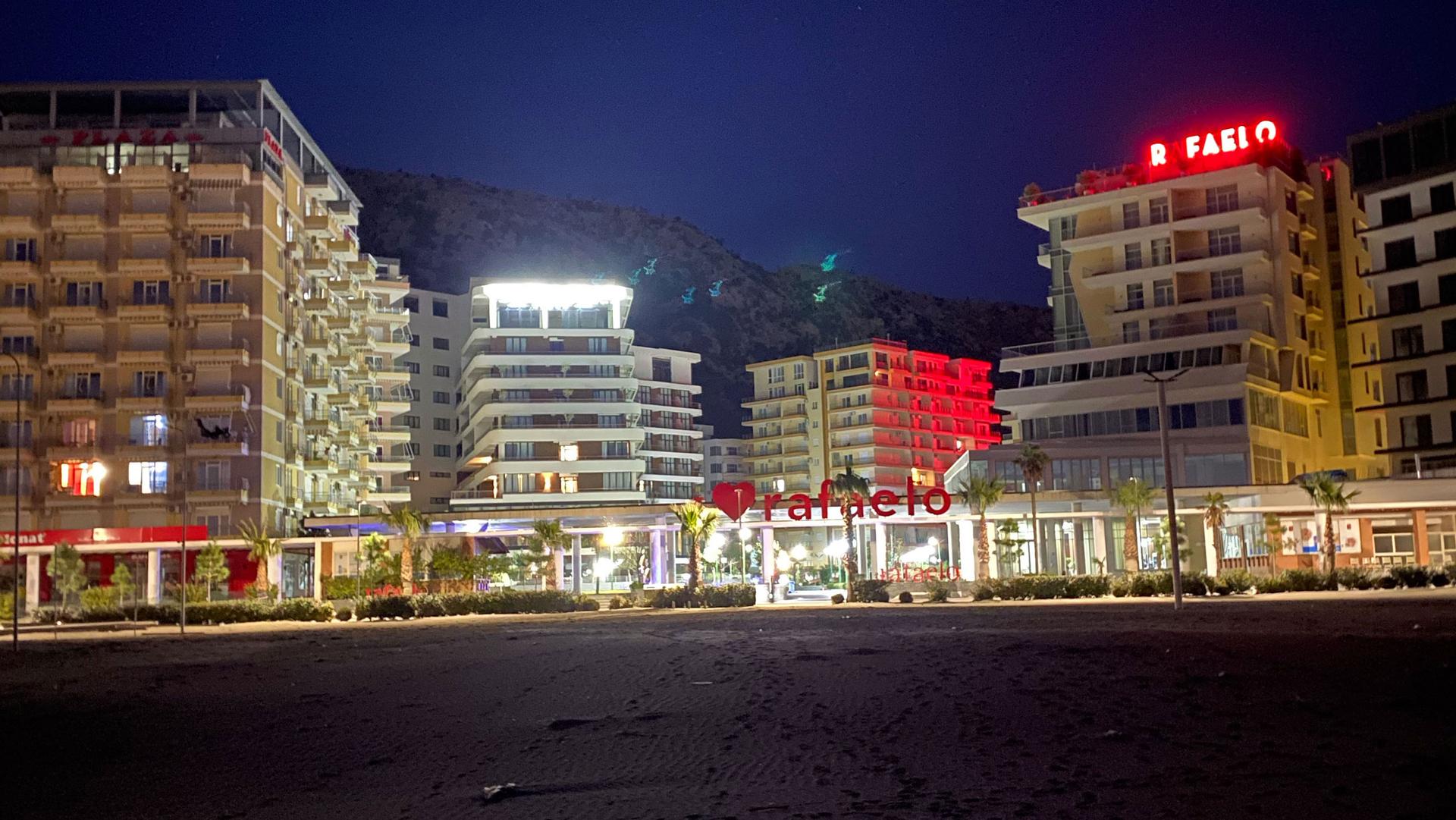A seaside resort in the Balkans is the last place Elyas Nawandish expected to be.
When he arrived in the summer, he said, the beach was full of tourists, which was a very new experience for Afghans who had fled to Albania from Afghanistan.
As chief online editor of the newspaper Etilaatroz, Nawandish used to oversee investigations into corruption by the Afghan government and human rights abuses by the Taliban.
“It is the people’s right to know what’s going on in the country and we are one of the only independent outlets. … We knew we were in danger, but we did it — we accepted the risk.”
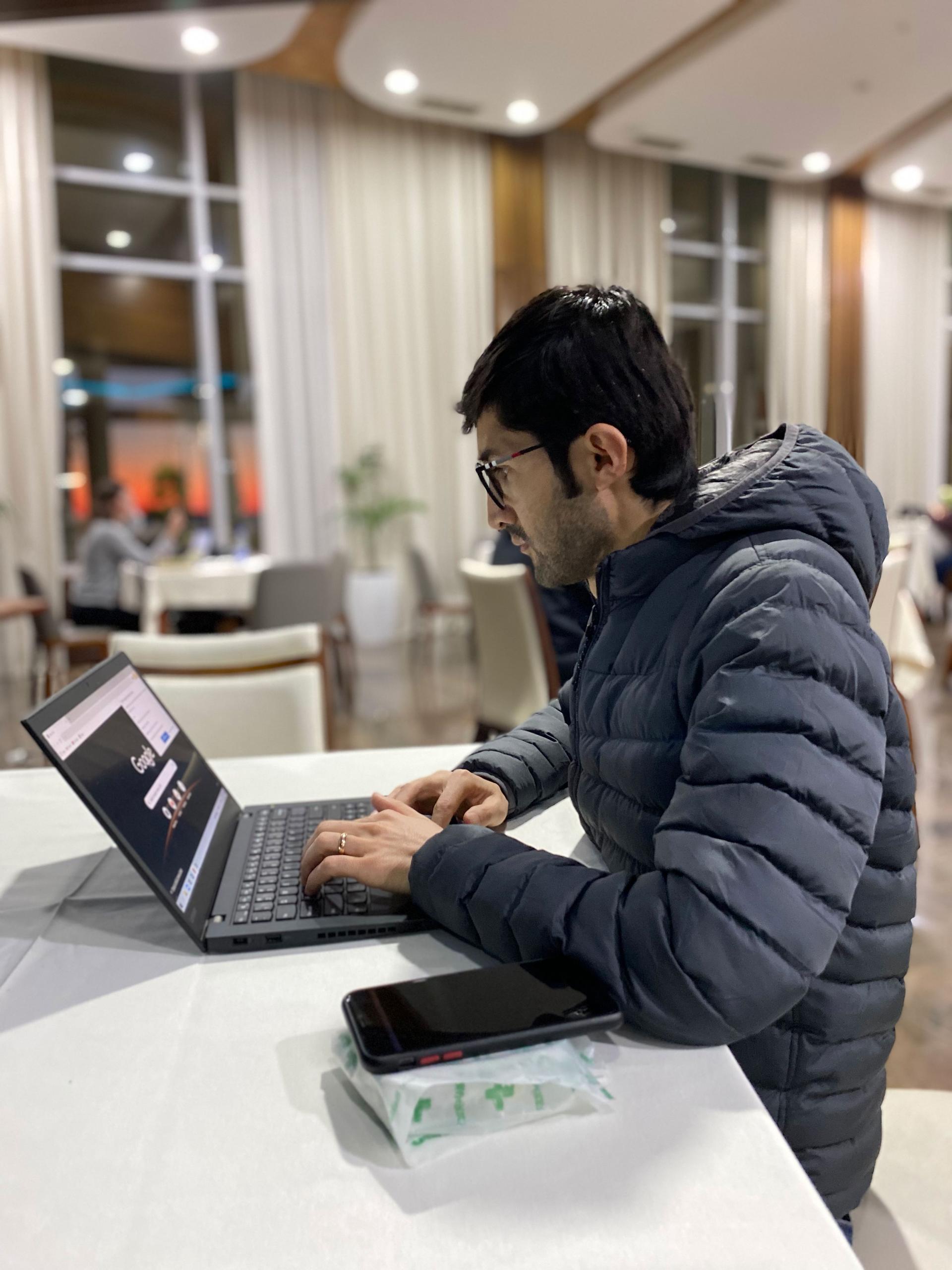
“It is the people’s right to know what’s going on in the country and we are one of the only independent outlets,” Nawandish, 29, explained. “We knew we were in danger, but we did it — we accepted the risk.”
Related: ‘We have no future’: Afghan women protest Taliban restrictions
But the risk proved too much.
In September, he said his colleagues were detained and tortured by Taliban forces after covering a women’s rights protest. Photos of protesters’ injuries made news around the world.
Nawandish fled, becoming one of the 2,000 at-risk Afghans working in law, politics and civil society who were flown to Albania.
Related: Some Afghan university students find refuge — and hope — in Kyrgyzstan
Albania’s staunchly pro-American government agreed to host them at the Rafaelo, a hotel complex in the town of Shëngjin, while they await vetting and processing for resettlement in the US or Canada. The stark contrast between the comfortable conditions here and the acute suffering of those back home is not lost on Nawandish.
“I was asking some of my friends here not to post photos of the beach or the hotel, as it might cause bad feelings back home. When we see the pictures coming out of Afghanistan, what the people are suffering, we feel guilty that we are safe,” he said.
All the temporary residents of the Rafaelo are grateful for the Albanian government’s hospitality, and to the US organizations and charities that are sponsoring their stay, but there is no avoiding the sense of limbo.
Their temporary legal status means that Afghans in Albania cannot officially work, though some entrepreneurial spirit is alive and well.
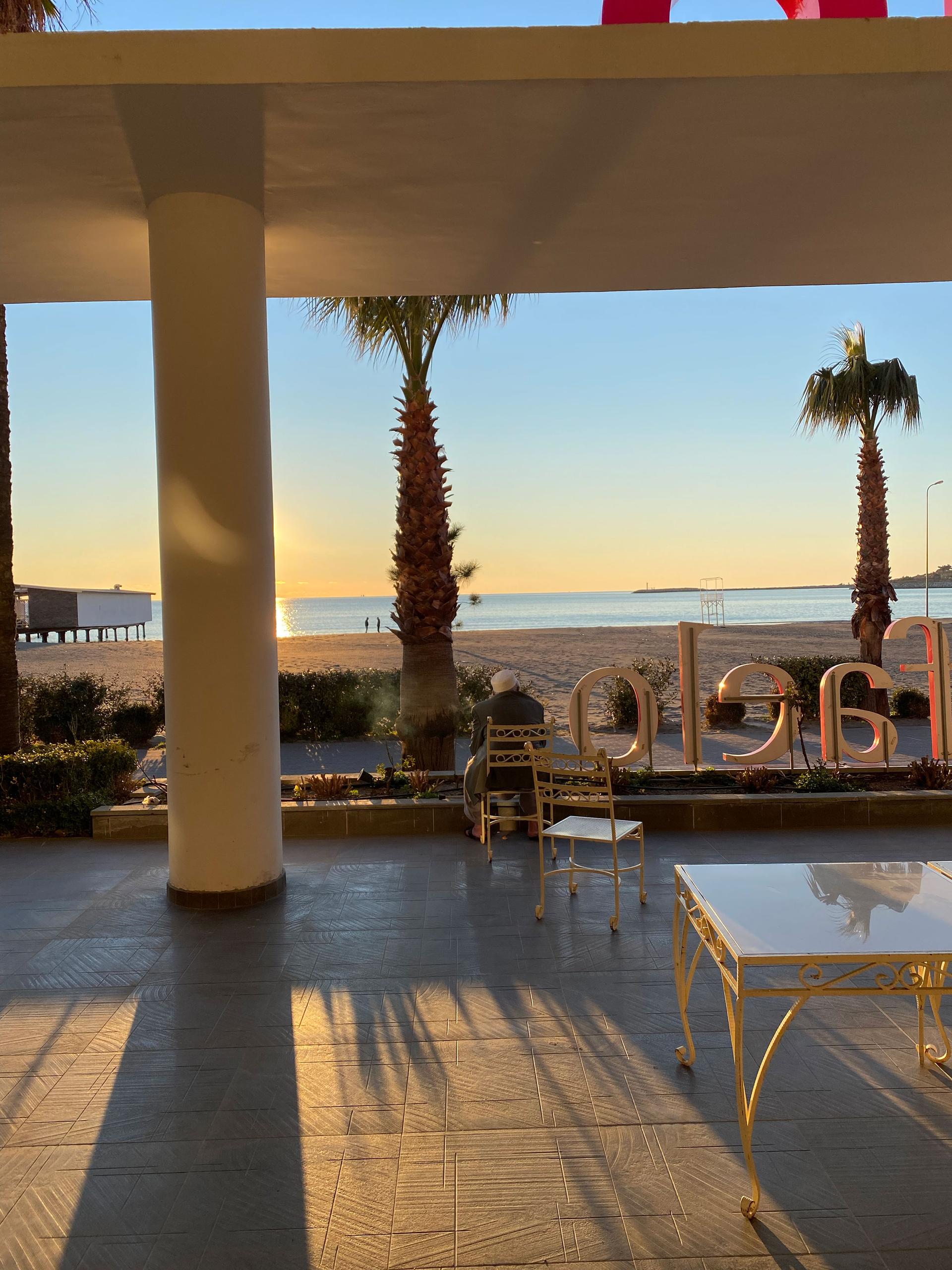
In a seafront pizzeria currently closed for the winter, a radio blasted out some familiar Afghan tunes.
Walwala Jalalzay and Maryam Aslami fried up homemade bolani, a flatbread stuffed with potato, onion and pumpkin. Until recently Jalalzay, 22, was a program assistant for a US-funded think tank and Aslami, 19, was an English teacher.
“I didn’t hear anything about Albania before until I came here,” Aslami said, “but the Albanians are hospitable and kind. Though when I see most of the Afghans, they are not so comfortable here because they don’t know what will happen to them,” Aslami said.
Serving both curious local Albanians, as well as fellow Afghans, Walwala said the work is a welcome distraction.
“It really helped me with recovering from the trauma we had,” Jalalzay said. “I’m constantly busy, I don’t have time to overthink about my family that I left behind — my parents and brother. That’s why this shop helped me a lot mentally,” she said.
In the courtyard of the Rafaelo stands a replica Statue of Liberty, but slow bureaucracy has meant that only a handful of the Afghans here have made it to the US. A few hundred have been accepted by Canada.
One of the hotel’s restaurants has become an informal office for the Rafaelo’s media workers.
Related: A long journey from Kabul brings one family to New Bedford
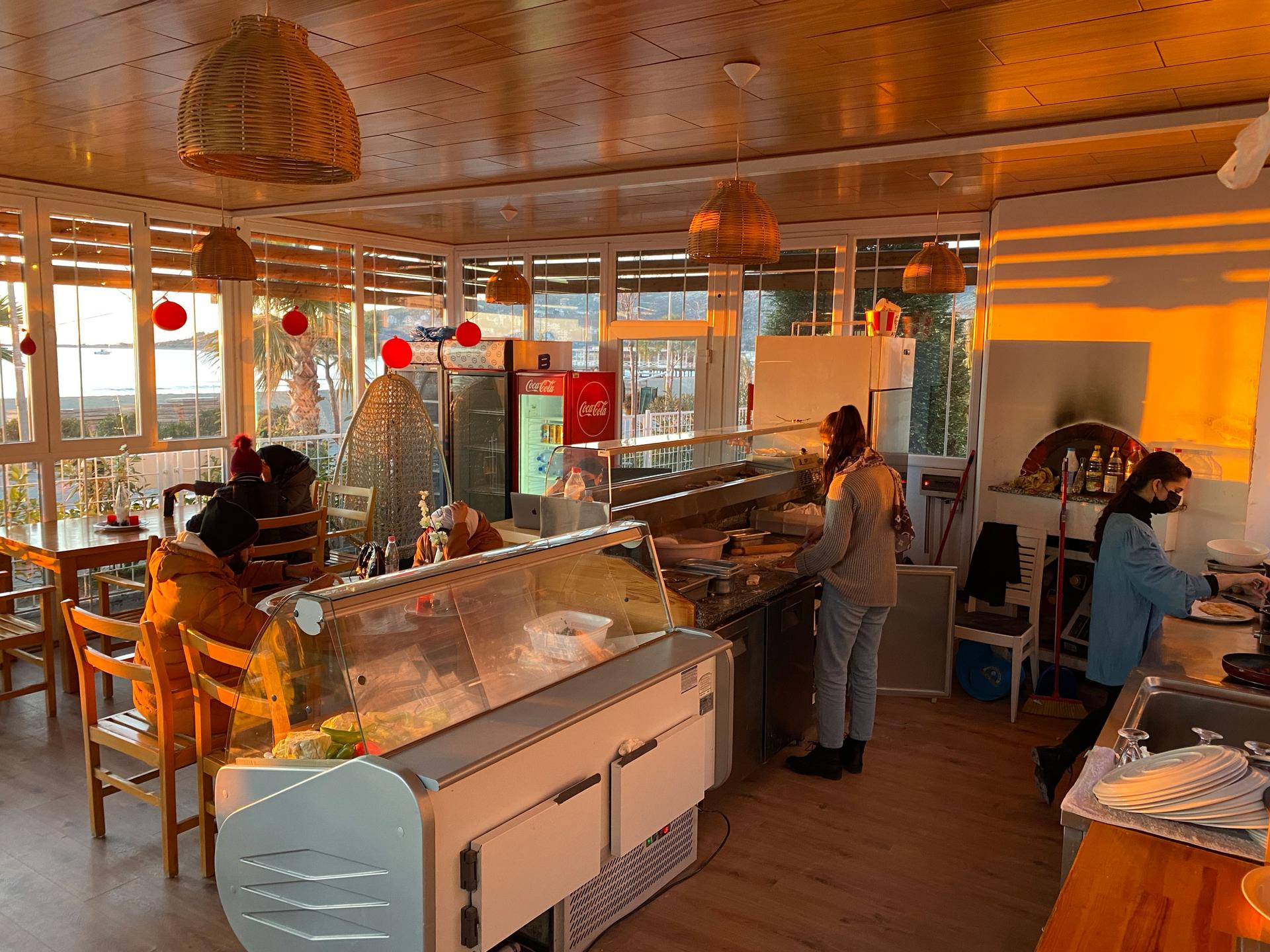
Mina Raoufi was working for the Hasht-e-Subh newspaper, hiding her equipment as the Taliban began to patrol the streets of Kabul.
“There were worries and fears, but I kept going to the office with my camera and my tripod wrapped in a plastic bag,” she said.
A split-second decision to get out of Afghanistan has altered her life’s course forever and, like so many at the Rafaelo hotel, feelings of relief were quickly replaced by guilt.
“I can’t really enjoy it here, because I’m always hearing news from my friends and family back home,” she said. “Now that I am in a safe place, I feel even more responsible for them than before.”
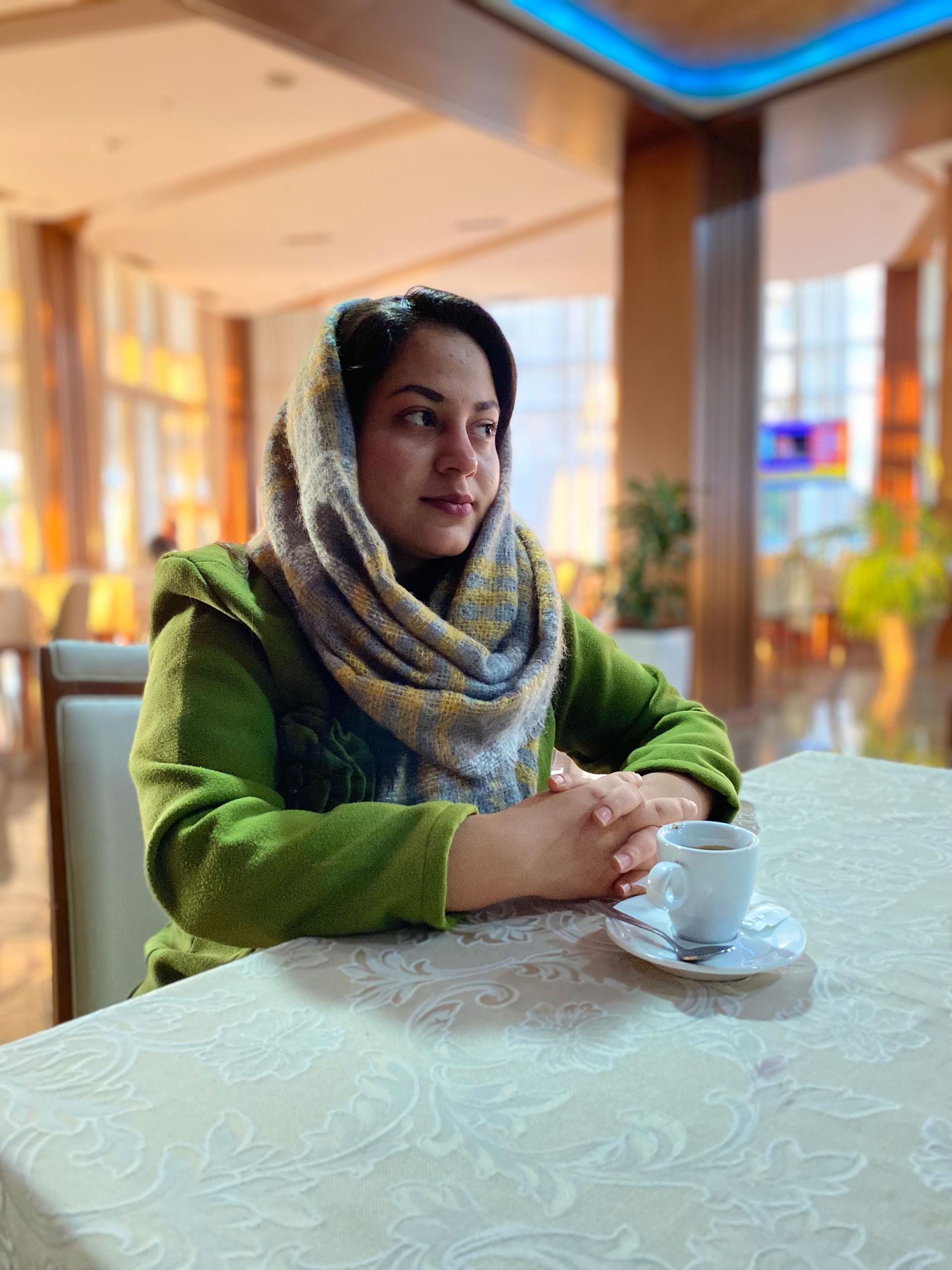
It’s a heavy weight to carry, but Raoufi is used to that. She’s also a weightlifter alongside her work as a journalist.
“I was in the national weightlifting team and federation for four years. There is no female Afghan weightlifting competitor in [the] Olympic or international tournaments, so I want to be the first one,” she said.
Anila Meco, country director in Albania for Save the Children, said this kind of limbo state for Afghans here poses risks for physical and mental health.
“We’ve had cases of people that have cancer, and they need to start a long treatment, but they are refusing to start it already because they think they should start that process in the final destination,” she said.
Back on the beach, Nawandish headed back for an editorial meeting with his colleagues scattered around the world.
He’s now entering his sixth month here, at the mercy of the US immigration system. Thousands more Afghans are stranded in third countries from Uganda to Kosovo to Qatar, their new lives so close, yet so far out of reach.
“Most of the people are physically here,” Nawandish said, “but mentally, they are not here.”
